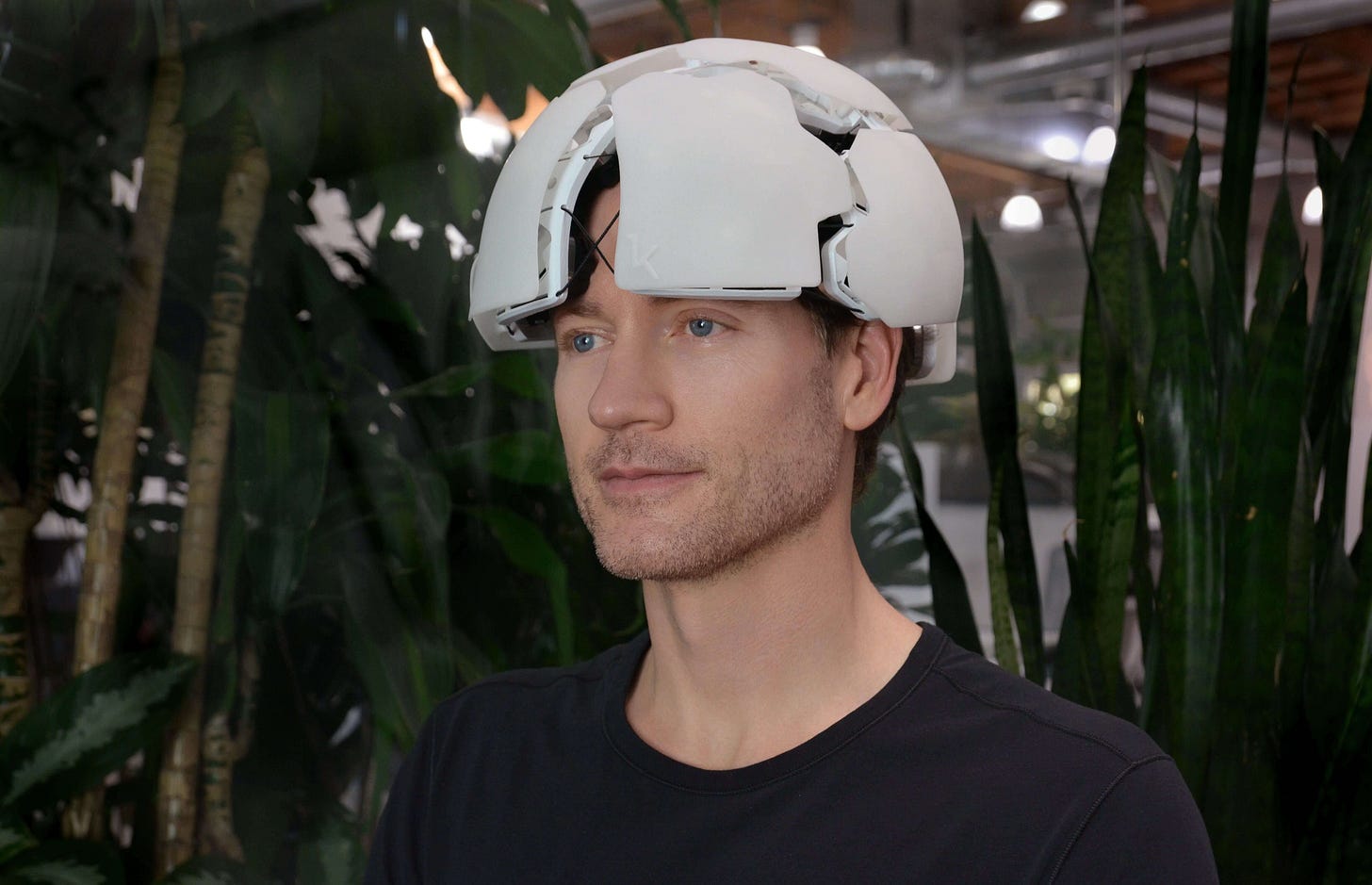Bryan Johnson is a former member of the Church of Jesus Christ of Latter-day Saints (a.k.a. the Mormons). He made billions in the tech industry and now leads the Don’t Die movement. Proponents of this movement believe that they can halt or reverse the effects of aging through nutrition, science, and technology. The more charitable among us might describe this attempt as misguided and foolish optimism. Alternatively, one might call it self-indulgent hubris. I lean toward the latter. It does, however, have the makings of a good sci-fi movie. An ultra-rich technocrat discovers the fountain of youth through artificial intelligence while the hoi polloi continue along the human journey of birth, aging, and death. I can hear the trailer now: “In a world where everyone dies, one man, who had a whole lot of money, decided he wouldn’t….”

Of course, Bryan Johnson is going to die. Everyone dies. There is, however, a way to have eternal life—one in which billions of people across the centuries have found wisdom, solace, peace, and strength. The very God who called all things into being became one of us in Jesus Christ to save us from sin and death. “And this is the testimony, that God gave us eternal life, and this life is in his Son” (1 John 5:11). Jesus offers us eternal life. There is no other way to receive it. The creator of life is the restorer of life. Athanasius put it this way: “The renewal of creation has been wrought by the Self-same Word Who made it in the beginning.”
Johnson doesn’t seem interested in that approach, perhaps because he is so deeply confused about the nature of God. In fact, he believes that humans will create God. He stated in an interview with Bari Weiss, “The irony is that we told stories of God creating us, and I think the reality is that we are creating God. We are creating God in the form of superintelligence .… I think the irony is that the human storytelling got it exactly in the reverse, that we are the creators of God, and that we will create God in our own image.”
Yes, the irony, Bryan… so much irony. You seem to be missing it.
We may develop forms of artificial intelligence beyond our wildest dreams—perhaps beyond our worst nightmares—but these will not be God. God does not differ from us simply by some quantitative measurement. Perhaps Johnson’s upbringing as a Latter-day Saint has played into his understanding of God. The LDS doctrines of God and salvation are fundamentally different from those of orthodox Christians. As stated on their website, “Through the Atonement of Jesus Christ, all people may ‘progress toward perfection and ultimately realize their divine destiny.’ Just as a child can develop the attributes of his or her parents over time, the divine nature that humans inherit can be developed to become like their Heavenly Father’s.” Joseph Smith, the founder of this movement, stated, that God “was once as one of us.” In time, we will be like God.
This is a category mistake. The difference between God and humanity is not one of degree, but of nature. Put differently, God is (thankfully) not just a more advanced version of you and me. Rather, he is qualitatively different from us. To use Karl Barth’s famous phrasing, God is “wholly other.” God is not another being in the way you and I are beings. God is that from which all being derives. Roman Catholic Bishop Robert Barron explains the matter this way:
For Thomas [Aquinas], God is not the supreme being (ens summum in his Latin), but rather ipsum esse subsistens, which means “the sheer act of to be itself.” In a word, God is not one more instance of the genus “being,” one thing, however exalted, among others; instead, he is the self-explaining source of existence as such, that great font of being in and through which all finite things subsist and act. Therefore, God does not compete for space, so to speak, on the same ontological grid as creatures; a zero-sum game does not obtain in regard to God’s activity and creaturely activity—the more we ascribe to one, the less we have to ascribe to the other.
Johnson should spend more time reading Bishop Barron (or, if he’s feeling ambitious, Thomas Aquinas). If he still believes in God at all, Johnson views God competitively, as a being that humans can supplant through technology. This view is wrongheaded. The confusion between creator and creation led to the original sin. “You will be like God,” said the serpent (Gen 3:5). But the serpent is a liar. We are not like God. Sadly, this will not deter Bryan Johnson—or others with the resources to convince themselves they are more than mere mortals—from their attempts to create divinity. The hubristic will always be with us.
In the Nicene Creed we confess that the Father is “maker of heaven and earth, of all things visible and invisible.” Of the Son we confess, “through him all things were made.” We affirm that the Holy Spirit is “the Lord, the giver of life.” Creation springs forth from the life of the Trinity. Everything comes from God, and while we may copy his work through technology such as human cloning or artificial intelligence, we will never supplant him. We will never even approach this. It is impossible because God is “wholly other.” Computers are the creations of creations. Artificial intelligence, like every other thing in the physical universe, depends upon the creative power of God to exist. There is one God—eternal, all-powerful, all-knowing, and unchanging—and without him, there is nothing.
And yes, we can have eternal life. But it is a gift we receive, not a product we create.






Well done, Professor! I fear that this fellow Brian, is one of many more to come, who will try to displace the One True God that we worship, just as the devil tried, and miserably failed.
The things that befall everyone, death and taxes. There are many "false teachers" of which the Bible warns. Mike Winger is planning to do a series calling out pastors who are wolves among the sheep. We should pray for our modern day Christian leaders who are speaking truth in a hostile, truth hating world. Most of us, who call ourselves Christ followers, are too fearful to do this, even though the Bible tells us we can do all things through Christ who gives us strength. I am concerned about the wimpiness of modern Christian faith, as well as the lack of discernment. Are we truly willing to trust and obey (love the Lord with all your heart, mind, soul and strength) the Lord who suffered, died an excruciating death on a cross to atone for our sins?